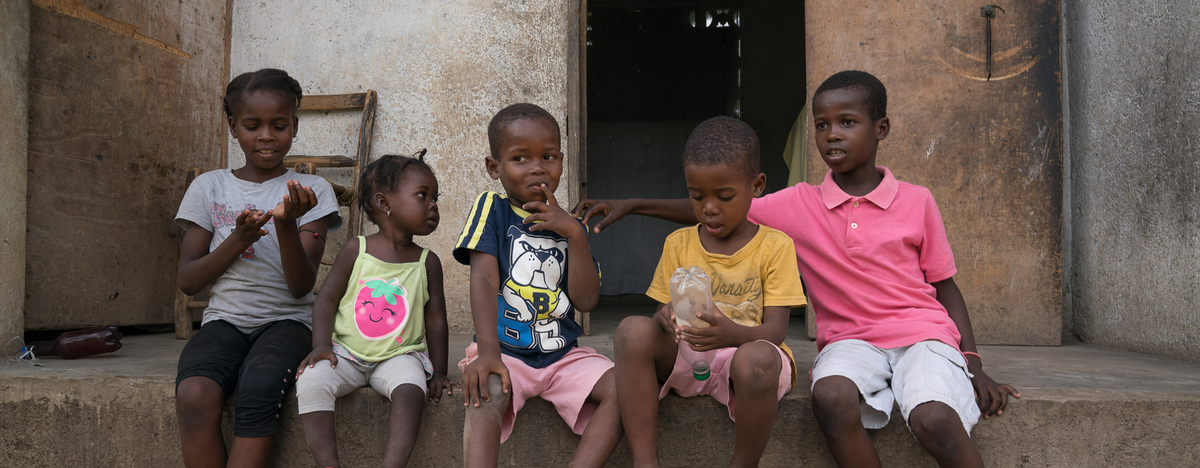As we face such uncertain, unprecedented times we, like most organisations, are doing our very best to ensure our staff, our partners and the communities we put first, are safe and supported.
As social isolation kicks in across many countries around the world, we face a new reality, many of us side-by-side with our families, adapting to a situation that feels lightning fast and glacial in equal measures. The presence of our loved ones is reassuring, yet the thought of those we can’t be with raises feelings of incompleteness and heightened anxiety.
This enforced separation, removal of choice and isolation is familiar to many children living in institutions and orphanages.
While the global COVID-19 response has rightly prioritised support to older people and those with additional needs, this crisis will affect vulnerable children in the short-term and far beyond. They must not be forgotten.
In this complex and dynamic situation, four key risks to children in institutions are paramount:
Vulnerability.
Institutions for children, as has been seen with care homes for older people, can be hotbeds for the spread of diseases – with residents in close quarters, often in very poor conditions. This is compounded by the fact that many institutions house children with vulnerabilities, such as the disproportionate number of children with disabilities in institutions, or institutions for babies.
Worsening conditions.
As staff who work in institutions need to self-isolate, and visitors are barred; we will see the care-giver ratio diminish. Children will be neglected, expected to ‘ride out’ the situation without the kind of loving, stable and nurturing family that we all lean on in times of great difficulty.
Knee jerk reactions.
We may see Governments taking decisions to immediately remove children from institutions, recognising the vulnerability of this form of congregate care in the spread of disease. Children are not a ‘unit’ that can be placed according to the convenience of others. A child moving to a new placement must be carefully assessed, prepared, supported and monitored; even if they are moving back to their birth family. Rushing or missing these steps may result in putting children in an even more harmful situation.
Family separation.
The effects of COVID-19 will be long-lasting, with economic collapse and social restrictions placing many families in a perilous situation. Increased poverty, stress, access to food and medical care and the impact on health will place families under strain. In some cases, it may mean that some children are kept in families, where it is not safe to do so. This pressure will test the limits of childcare and protection systems. Increased family breakdown, abandonment, and family separation may follow, and lead to a resurgence of the institutionalisation of greater numbers of children.
What should be done to prevent this?
Prioritise immediate safety.
Recognise the enhanced vulnerability of those in group settings and undertake necessary steps to prevent outbreaks, and support children. This can include support for institution staff, restrictions on visitors, social distancing; access to hygiene and medical supplies and much more. Prioritise the many unregistered institutions around the world which may have less scrutiny, structure and accountability in crises.
Increase monitoring.
It is essential that the situation of children in institutions, and vulnerable children in families, is monitored. With less resources and little freedom of movement, this will have to be done creatively, with remote technology playing a part. While the focus of most systems will be on virus containment or suppression, the situation and needs of vulnerable children cannot be neglected – and where issues are identified – support must be prioritised.
Prevent separation.
Ensure that families affected by this crisis are supported – in the short, and long term – and that every effort is taken to prevent unnecessary family separation, and other child protection risks. This can include aspects such as financial and psychosocial support to families and communities.
Build a better system.
Use this crisis to build a system you would want your own children to grow up in. We all need to grow up in a family, and that necessity is never more true than in a crisis. Governments and funders with international influence and resources, cannot afford to look the other way on these most vulnerable and hidden children. We need to ensure reunification is carefully managed and resourced; and that families with children are supported as they face mounting pressure in the short and longer term.
Lumos is actively working with our partners around the world to help reduce the impact of this crisis on vulnerable children. Once immediate pressure is over, this crisis can lead to a fundamental rethink of how we support vulnerable children, families and communities. When we are faced with fragile societies and limited resources, these fragments need to be the building blocks to a better future.
Photography: © 2019 by Home Box Office, Inc. | Brendan Bannon



